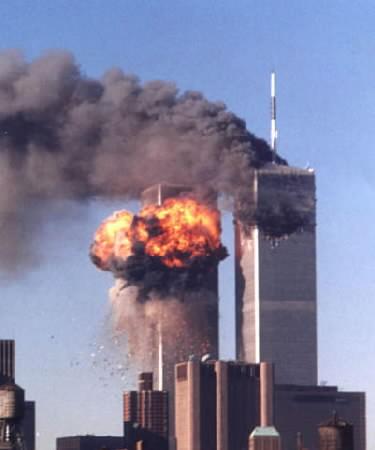 In reflecting on the 10th anniversary of 11 September 2011, CPTers looked back to recall our responses a decade ago. The following includes excerpts come from “In Harm’s Way,” by Kathleen Kern (available at www.cpt.org/resources/books).
In reflecting on the 10th anniversary of 11 September 2011, CPTers looked back to recall our responses a decade ago. The following includes excerpts come from “In Harm’s Way,” by Kathleen Kern (available at www.cpt.org/resources/books).
The Al Qaeda hijackings and subsequent carnage at the World Trade Center and the Pentagon on September 11, 2001 happened at a particularly busy period in CPT history [with teams in Puerto Rico, Mexico, Colombia, Palestine and New Brunswick all facing significant local developments].
Claire Evans, working in the Chicago office, voiced the feelings of many CPTers when she wrote, “My first thought was how everything we do is so, so small compared to that big event. How can what we do in CPT have any significance in the wake of that large catastrophe?
Doug Pritchard, who had been posting a weekly “Prayers for Peacemakers” on CPTnet since 1996, wrote: “In light of the events of September 11, pray that we may walk in Jesus’ way of nonviolence, both locally and globally, and that we may ‘get in the way’ of comfortable analysis and unjust structures that lead to violence.
After four days of U.S. and British bombing of Taliban-related targets October 7-11, 2001, CPT issued an organization-wide Statement of Conviction:
“…The act of terror that killed thousands of people in New York, Washington, DC and Pennsylvania on September 11, 2001 will not be set right by bombing Kabul or any other city. Bombings with the official authorization of western governments are also acts of terror.
As followers of Jesus Christ, we believe that we must choose the nonviolent way of the cross in these dangerous times. If we or our loved ones are attacked, injured or killed by acts of terror, we forbid our governments to retaliate in our names. We believe that our lives are no more important or valuable in God’s eyes than the lives of Afghans, Arabs, Colombians, Sudanese, Mexicans, Angolans, East Timorese, Aboriginal peoples and others.
We maintain that those responsible for the September 11 attacks must be held accountable for their crimes through internationally recognized nonviolent means.
We also maintain that other leaders who have used their positions of power to design, order or commit acts of terror that have killed millions of civilians throughout the world must be held accountable for their crimes, including Henry Kissinger (Cambodia, Vietnam), Israeli Prime Minister Ariel Sharon (Gaza, West Bank, Lebanon), former Indonesian President Suharto (East Timor), former U.S. Presidents Ronald Reagan (contra war against Nicaragua) and Bill Clinton (Iraq). The list goes on…
We intend to continue resisting any foreign policy that results in the death or exploitation of human beings, whatever their nationality. Again, we are putting our country on notice today that it does not have our permission to go to war in our names.” (www.cpt.org/archive/all/2001/10/12)
But the enormity of the 9-11 attacks and the imminent plans to attack Afghanistan – combined with CPT’s working relationships with Arabs and Muslims likely to bear the brunt of a grief-stricken nation howling for revenge – compelled the organization to do more than make statements.
Steering Committee members meeting October 18-20, 2001 approved sending a two-person delegation to Afghanistan. CPT Director Gene Stoltzfus, and CPT Canada coordinator Doug Pritchard arrived in New York City on December 16, 2001 with the intention of traveling from Ground Zero, [the site of the demolished World Trade Center where they offered prayers for the victims, perpetrators, and avengers of the Al Qaeda attacks] to the “new Ground Zero” in Afghanistan.
Pritchard and Stoltzfus returned from their trip proposing that CPT “move as quickly as possible to develop a five-person peacemaker team to begin work in Afghanistan by June 1, 2012…”
Given the complexities of the situation, the lack of available personnel at the time, and the crises happening on other teams, CPT ultimately concluded that a project in Afghanistan was not viable.
Ten years later, we continue to work and pray “that we may walk in Jesus’ way of nonviolence, both locally and globally, and that we may ‘get in the way’ of comfortable analysis and unjust structures that lead to violence.”



